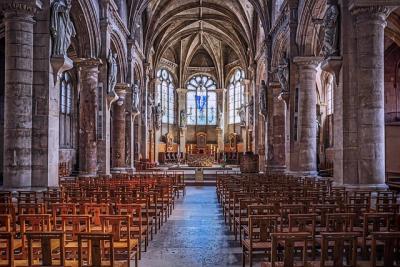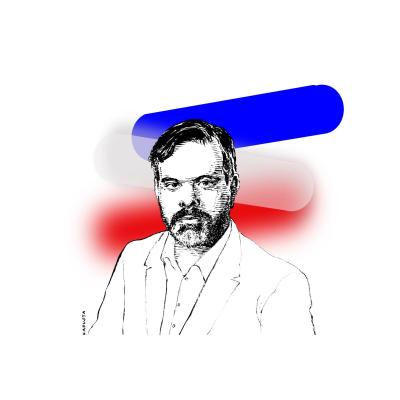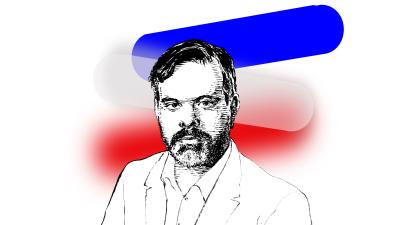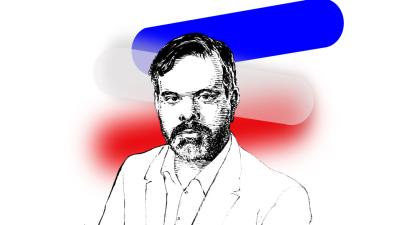The situation of the Catholic Church in France is particularly worrying. The number of priests has been gradually decreasing for several years. In the early 1960s, there were 41,000 priests in office. In 1995, there were 29,000, and in 2020 half that number, or about 14,000. What is more, half of the French priests are over 75 years old. Every year now between 600 and 700 priests leave, and their departure is far from being compensated for by the few hundred new priests who take up their duties.
At this rate, in less than 30 years there would be only about 3,000 priests left in France, or 1 priest for every 20,000 inhabitants. This is often referred to as a vocational crisis, but this trend can also be explained by the falling number of baptisms. In 1960, there were 740,000 baptisms in France, i.e. 91% of all births. Twenty years later, this figure fell to 64.3% of births, in 2000 to 52% and in 2020 (the year of the Covid) to less than 13%. Catholic marriages have dwindled at least fivefold over 40 years. And of all these French people, a large proportion marry in Church or baptise their children more by tradition than by conviction. There is a general disaffection with religious practice. Very few practise on a regular basis and go to mass every Sunday. As a result, 5,000 churches are in danger of disappearing by 2030, mainly because of lack of the faithful. Various associations demand that statues of saints, the Virgin Mary or even nativity scenes be removed from public spaces, and are granted the consent to this with relative indifference.
For my part, I really became aware of the situation a year ago. Before that, I thought there was a certain revival. The churches seemed to be filling up, compared to a few years ago, when you could attend very sad Masses with just a handful of the faithful, all of them very old. But this is because nowadays church services are rare and so the faithful gather there, giving an impression of a mass. In some places in France you have to travel several dozen kilometres to attend a Sunday mass. For example, last July I attended a mass in a very small church (only open in the summer) in a village in a French tourist region. It was the only Mass within a radius of 20 km, with the population in the area numbering about 5,000 people during the year and perhaps 20-30,000 during the holidays. The service was conducted by a bishop, alone without any assistants, for a small group of thirty or so faithful, one third of whom must have been foreign tourists, one third French tourists and the last third local people.
The Church in France, surely as other Churches in the world, is crossed by two main currents. The first is that of Pope Francis, often described as "progressive" or left-wing, who focuses on issues of aid to migrants, openness to minorities and sustainable development. To simplify, we can say that he would like to turn the Church into a large humanitarian NGO, not to evangelise, but to help establish a paradise on Earth. This current has largely supported Emmanuel Macron and his party, which promotes euthanasia, as well as constitutionalisation of abortion and late-term abortion for "psychosocial" reasons.
The other current, often described as "conservative", is convinced that we have reached a turning point in the history of the West, where whatever path we choose, the outcome will be tragic. For them, the general situation in the West in general, and in France in particular, is getting worse with the 'woke' delusions, the sexualisation and commodification of children. Those conservatives are stigmatised by the media and a large part of the political class for their non-progressive vision of the world. All this leads them to consider themselves as the last Mohicans, sometimes even dreaming of being martyrs, and to prepare themselves for great persecutions. But in doing so, they isolate themselves from society and therefore from the imperative of evangelisation. That current constitutes the militant and financial base of the conservative right in France. Unfortunately, in practice it supports disreputable political leaders. The leaders of that right wing declare loudly and clearly their Christian roots, proclaim themselves great defenders of Catholic values and culture, but never speak of God, of Truth, never promote a virtuous life and an exemplary conduct. At the same time, how could they do so? Their private life is in total contradiction with the teachings of Catholicism. They have a particularly filthy sex life and/or live lavishly on other people's money. When you point all this out to these French "conservatives", they launch into particularly relativistic discourses. They all refuse to see that these are transgressions, that by freeing themselves from all constraints, their leaders are abdicating all responsibility, like the sixty-eighters they so criticize. How can these Catholics imagine for a moment entrusting the general interest and the future of the nation to leaders who, by their sexual practices and behaviour, show such selfishness and such disrespect for the human person?
As can be seen, the two main French Catholic currents have two major points in common which are unlikely to help the catastrophic situation of the Church in France. Firstly, the political leaders they choose for themselves are far from being good examples, and even less so of a force for conversion. Secondly, evangelisation is not their priority. In these troubled and uncertain times, they are concentrating on the essentials to preserve French Catholicism beyond the long storm that is coming.
But in this extremely bleak picture, there are some small glimmers of hope. Firstly, this year the number of baptized adults has increased from an average of just over 4,000 to nearly 5,500. If the quantity is lacking, the quality is there. The parish life is quite dense. Let's remember that in the High Middle Ages and in the Middle Ages, the Christian space was built from below. First of all, there were places where believers gathered, then places where the relics of saints, exemplary men and women, were found. Over the centuries, these places became both geographical and moral landmarks for French society. This is how the whole of Europe became structured in order to strive for a virtuous life, exemplary conduct and excellence.
Read also
Country Report: France, February 2023
Throughout February, France has been gripped by the "Pierre Palmade" affair, named after a famous comedian and showbiz star known to all French people. On 10 February, his car violently collided with another car whose passengers were a six-year-old boy, his father and his sister-in-law, a young pregnant woman.
Patrick Edery
France: Constitutionalisation of abortion deserves a referendum
The French radical left (the "La France Insoumise" party) followed by almost all parties on the left, centre and right is going through all the steps to pass a constitutional bill to enshrine "the freedom of women to terminate their pregnancy in the Constitution".










Comments (0)